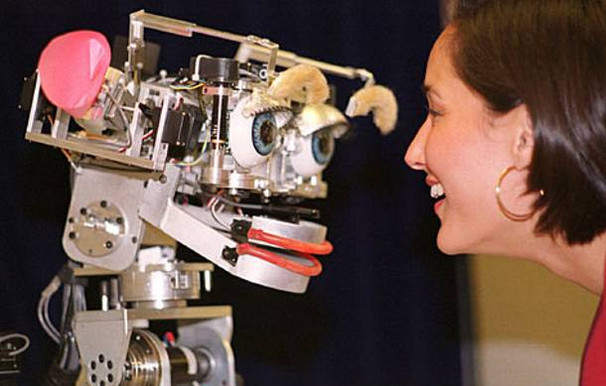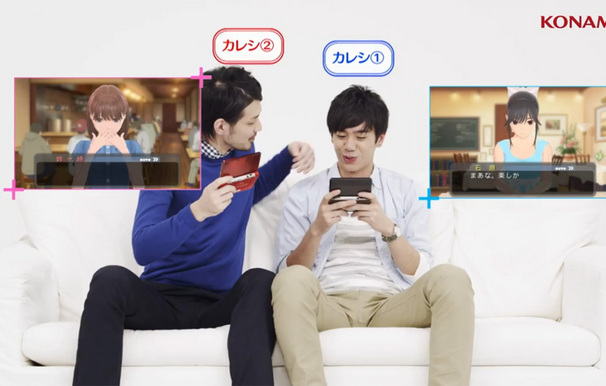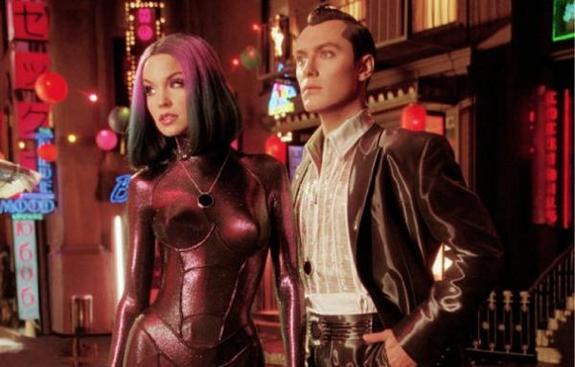Today's Humans Ready to Love Tomorrow's Robots

A world of lonely singles finding comfort in the arms of a robot lover may be closer than expected in human hearts and minds. Only a few people have vowed romantic love for a life-size "RealDoll" sex doll or the virtual schoolgirls of the Japanese dating simulation game "Love Plus," but scientists say that even the simplest toy robots or video games have shown how machines can manipulate human emotions.
Tomorrow's sex robots or virtual companions still won't inspire most people to abandon their boyfriends and girlfriends — at least not until such artificial beings can look and behave human without creeping anyone out. Instead, many more people may find themselves forming platonic bonds with the next generation of smarter robot toys or virtual assistants in their cars and smartphones.
"We're not going to wake up someday and say 'It's OK to have a relationship with a robot,'" said Thalia Wheatley, a psychologist at Dartmouth College. "But it's going to organically happen that we grow to depend on these things."
Relationships short of romance have already blossomed more openly. Schoolkids and nursing home residents willingly hug, pet and kiss electronic toys such as the owl-like "Furby" and cuddly "Paro" seal without shame, and treat the simple robots like their own children. Battle-hardened U.S. soldiers have shed tears over wrecked robots and risked their lives to rescue malfunctioning machine companions.
Nurturing the killer app
Even scientists who should know better find the impulse hard to resist. Ayse Saygin, a cognitive scientist at the University of California, San Diego, admitted to feeling guilt whenever one of her Furby toys would start complaining out of "boredom."
"We like to think of ourselves as sophisticated emotional beings, but our emotion buttons are easily pressed by low-tech devices," Saygin told InnovationNewsDaily.
Get the world’s most fascinating discoveries delivered straight to your inbox.
Such experiences suggest that nurturance is the "killer app" for winning over human hearts and minds, said Sherry Turkle, director of the Initiative on Society and Self at MIT, in a 2007 paper titled "Authenticity in the Age of Digital Companions." She pointed to how digital "Tamagotchi" pets of the 1990s used simple beeping sounds to encourage both kids and their parents to nurture the pets throughout the course of their virtual lives.
That emotional manipulation of the nurturing instinct has only evolved over time. The latest "Love Plus" virtual girlfriends demand that players kiss them through the touch screen of their handheld Nintendo gaming devices, or ask them to say "I love you" one hundred times into the device's microphone.
Give me some (artificial) sugar
Humans can fall head over heels for cartoony robots or virtual companions in part because they try to read the motives or intentions of even the most vaguely lifelike actions. Psychologists found that people interpret an animation of triangles and a circle moving around a square as "the circle chasing the triangles" in a classic 1944 study, Saygin pointed out.
The ability for a robot or virtual companion to trigger human interest is not unlike how artificial sweeteners can satisfy a natural desire for sugar, said Karl MacDorman, a robotics researcher at Indiana University.
"We may seem stupid for being taken in by their simple tricks like eye contact, but these tricks are working on us subconsciously," MacDorman said. "There wasn't anything in our evolutionary history that looked human but wasn't, so there is no reason for these tricks to be ineffective from a biological standpoint."
Still, such tricks only work with simple devices such as the cuddly Furby or the anime-style virtual girlfriends of "Love Plus." Robots or virtual companions that try to appear too human can trigger a sense of discomfort or even disgust in humans — a drop in empathy described as the "uncanny valley" by Japanese roboticist Masahiro Mori.
Escaping the uncanny valley
The drop in human empathy may happen because of incomplete realism in a humanlike robot or virtual companion. Computer-animated films such as 2004's "The Polar Express" can trigger the uncanny valley by combining realistic human faces with "dead eyes" and imperfect facial expressions. Similarly, robots that appear almost human can quickly turn creepy by moving and speaking stiffly.
Most people may not feel comfortable romancing a robot or virtual companion until such technologies conquer the uncanny valley and become as realistic as Jude Law's "Gigolo Joe" sexbot from the 2001 film "AI." That may explain why only a small group of people openly admit turning to "Love Plus" virtual girls or "RealDolls" for emotional satisfaction — the majority of such customers may still buy the devices as games or expensive sex toys.
"People who profess a relationship with a machine are outliers, because they're accepting on a higher cognitive level that it's reasonable behavior," according to Wheatley at Dartmouth College. "Most people would say 'no, no, that's not reasonable.'"
But plenty of humans may have fallen for common gadgets in a nonromantic sense — something that may only get easier as machines improve beyond the interactions offered by Apple's "Siri" intelligent agent in the iPhone 4S.
"What people are less aware of is that they're probably connecting in an emotional way with machines around them, such as cars and cellphones," Wheatley said. "They just wouldn’t label it as a relationship to outside people, because that would be weird."
The future of love
Even the romantics have begun to gain some acceptance. The successful "Love Plus" games inspired one Japanese seaside resort town, called Atami, to offer special tourist packages to male gamers and their virtual girlfriends. And a new "Love Plus" game being released on Valentine's Day 2012 in Japan allows the virtual girls to interact with real-life pictures of gamers' favorite romantic spots.
The possibility of human-robot marriage in 50 years was also the subject of government studies in South Korea and the U.K. "I think it's crazy, but it is interesting that some people take this seriously," MacDorman said. He added that building "androids that perform sex" will still prove much easier than building "androids that engage in intelligent conversation."
But as more robots and virtual companions step out of fantasy into reality, it's a sure bet that a growing number of people will prove willing to step out with them.
"The main barrier I see is time," MacDorman said. "With time, all other barriers will be surmounted."
This story was provided by InnovationNewsDaily, a sister site to LiveScience.







